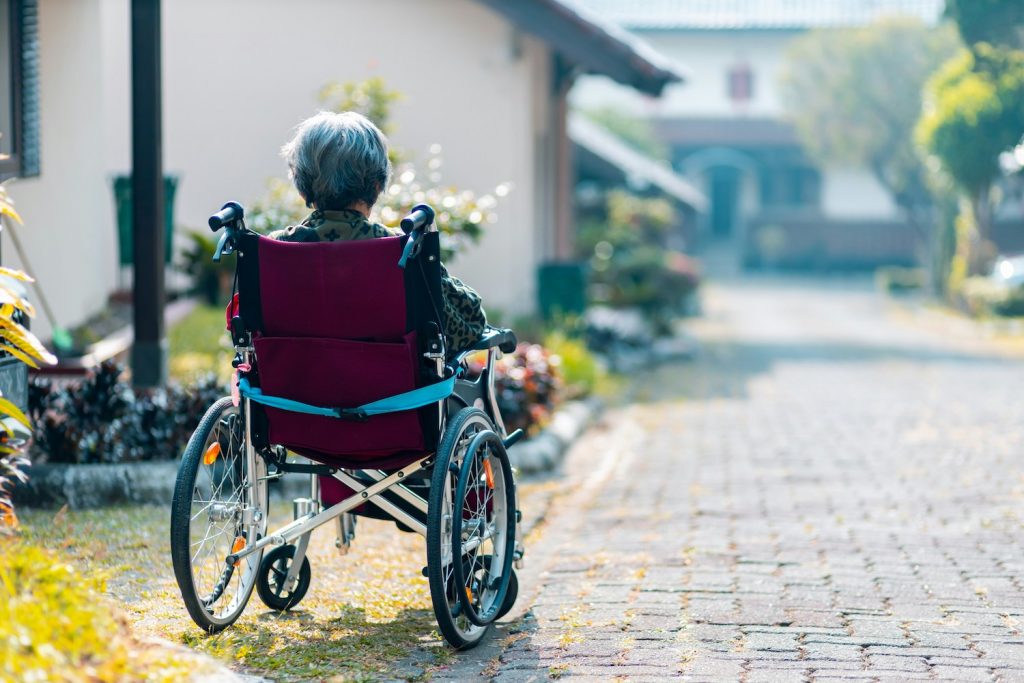In the Buddhist tradition, there is a daily practice of taking refuge vows. It’s very simple. It goes like this:
In the Buddha, I take refuge.
In the dharma, I take refuge.
In the sangha, I take refuge.
I’ve taken those vows since 1999, when I met my teacher, Anam Thubten. In the beginning, my refuge was the fact that this man actually existed (the Buddha); then, that he offered his teachings for our benefit (the dharma); and finally, that there were like-minded humans who gathered to practice those teachings (the sangha).
With time, I learned how much deeper those vows go. Now, my refuge is:
The Buddha (The Buddha lives in me, and I bow to this and invoke it every day.)
The dharma (Everything that happens is a teaching. Everything.)
The sangha (Everyone in the world points me toward awakening.)
***
In that context, I want to tell you a story crafted from a journal entry I found, written on December 12, 2020. My mother-in-law was deep in the Times Square Traffic Jam of dementia, and, because our home health care aide had thrown her back out, my wife and I would have to cover for her on the following Wednesday and Thursday. Elena took Wednesday, I took Thursday.
This was my Thursday:
Mrs. T wants to go somewhere all the time, so I take her driving. She likes that. We go to the Hicksville Nursery. We go to the mall. We wander around till she says, “I wanna go home.” Which, to her, means the year 1930, and 23 East 3rd Street in Brooklyn—but, to me, means ninety years later, and her little yellow house in Floral Park, Long Island. I drive her home.
“This is not my home!” she says, incensed.
“I know, Mrs. T, but let’s just make a pit stop here and go to the bathroom.” Maybe that will work.
“You go. I don’t have to go.” Well, that didn’t work. I try something else.
“I need you to come with me.”
“Why?”
I try to figure out what to say. I have nothing.
“Mrs. T, I don’t know what else to do. This is where you live. It’s your house, so we need to go in. It’s freezing. Let’s just get inside and warm up.”
She yells obscenities as I get her wheelchair out of the back.
“I want my papa! I want to go home!”
It escalates until I sit in front of her and say, “Mrs. T. I want to give you what you’re asking for, but can we please just go inside for a minute? I think you have a load in your pants—and you don’t wanna see your papa smelling like this.”
It works for a minute. I have to gently fight her into the wheelchair and push her up the ramp and into her tiny bathroom. And at this point, I have to tell you: the best litmus test for any bodhisattva in training is the smell of heavily medicated poop coming out of a 95-year-old. It will make your hair fall out.
I’m trying to find the right stuff to clean her with, so I turn away for a second, but when I turn back, she has poop on her own fingers. Now, I’m rattled, and she’s agitated. I have to clean her hands, which pisses her off even more. I need to maintain a calm voice, because if I don’t, we’re really screwed. I need to get her completely clean. She continually tries to help but just gets dirtier in the process. Finally, we’re in the process of putting her pants back on, but then yet another round comes out. I have the thought, “My life is a living nightmare and this will never end.”
But, after an intensive effort, we get through it. And, of course, my life was not a living nightmare—it just felt like it at that moment.
Looking back, isn’t this what I’m talking about when I sit at my altar every morning and say, “For the benefit of all living beings, I shall give rise to the awakened mind, and continually train in the way of the bodhisattva?”
Did all the awakened ones reach enlightenment by never being disturbed by anything? By just sitting in a nice clean monastery and only dealing with their thoughts?
I’m guessing not.
We—I—have to go right into the mouth of hell. Which is nothing like the mythic beast with bristling incisors, emitting a terrifying, ear-splitting roar. No. Nothing so exciting or heroic.
Of course, my life was not a living nightmare—it just felt like it at that moment.
It’s the silent odor of shit from an old, old lady who’s yelling, “Take me home, you stupid bitch!” It’s remembering—while finding the clean pull-up, while cleaning the toilet afterward and the handlebars and the sink and the floor—that Mrs. T is a living being who is lost and suffering and can see no way out. It’s remembering that I, too, am a living being who is lost and suffering and can see no way out.
My most important work today is to tenderly put my arms around us both as we hobble forward into the next day, holding on to each other, pushing each other away, linked and tired. Bitter and grateful and resigned.
The next morning, she wakes up happy. In the morning, Mrs. T is always ready to go, in the sweetest way.
“Let’s go,” she says, her face full of joyful anticipation. “Look at that sunshine!”
I get her dressed, make some breakfast, and we eat together, laughing. Tony Bennett croons from the CD player.
She sips her tea and sings along, knowing every word.
♦
This piece was adapted from an article originally published on Tina Lear’s Medium.
Thank you for subscribing to Tricycle! As a nonprofit, we depend on readers like you to keep Buddhist teachings and practices widely available.
